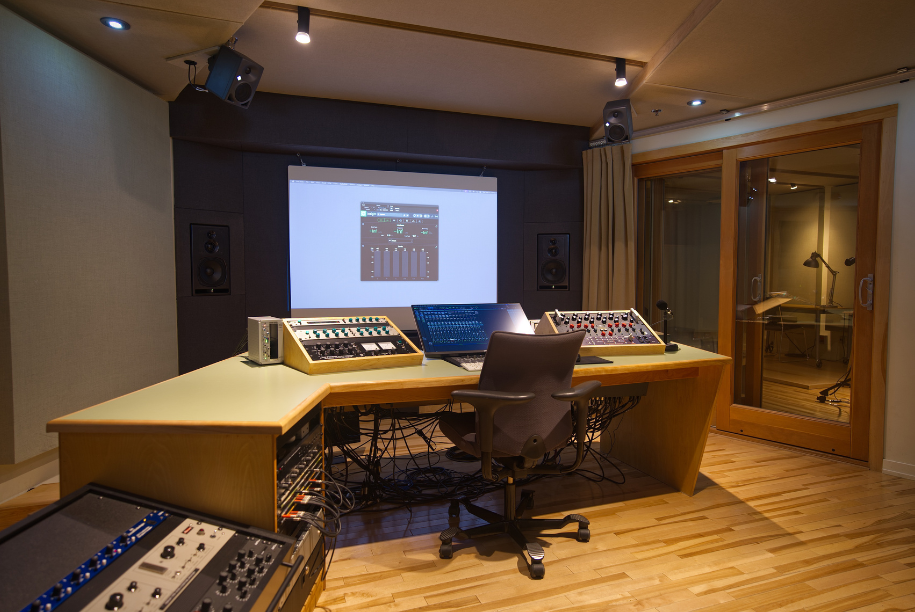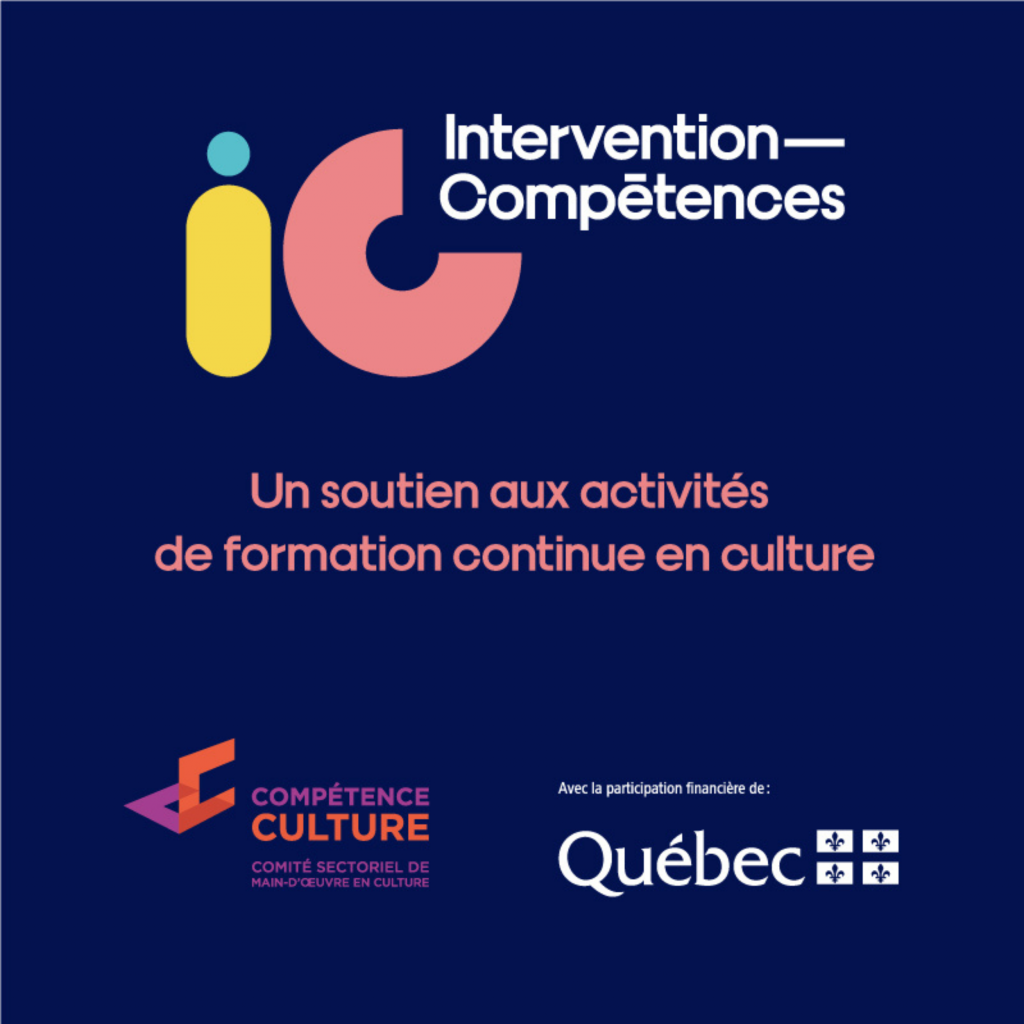Stéphane Claude Fili 周 Gibbons An Hybrid Approach to Working in the Recording Studio

© OBORO
This training program is made possible with the financial support of the Quebec government, via the Intervention-Compétences program, managed by Compétence Culture, and REPAIRE.
Training level: beginner-intermediate
Training cost: $100 plus taxes
The workshop is conceived for intermediate or advanced participants. The workshop will be given in French, but all instructors are bilingual and can answer questions in English.
The objective of the workshop An Hybrid Approach to Working in the Recording Studio is to share broad knowledge of sound studio practice, from the pre-production and production stages in the control room and recording booth, technical listening, and different methods of multi-track recording. The workshop will also invite exchange between the various participants of various experience skill levels.
Participants will be able to work in OBORO's professional sound studio, learning the basics and physical methods of using equipment in multi-take and/or simultaneous recording sessions, where it will be possible to orchestrate a variety of recording setups — direct line takes, close microphones in mono and stereo configurations, as well as ambient, immersive surround and ambisonic recordings. These sessions, in the presence of electronic and acoustic instrumentalists, will be followed by applied sound and music post-production, track assembly and mixing.
Over the course of the three-day workshop, participants with explore typical studio production workflows in stages — recording, editing, mixing, and post-production.
Day 1: Studio orientation and preparation for live recording session with artists.
Day 2: Studio recording with musicians, pre-mixing and editing.
Day 3: Post-production, mixing and exports workflows.
By the end of the workshop, participants will develop a greater confidence and broader skillset working in studio environments with artists, heightened through group exchanges, and hands-on collaborative work.
The training will consist of:
- Developing familiarity with studio workflows, collaboration with live musicians, and working with a variety of sound sources and relevant production techniques.
- Discussing the history of OBORO sound studio design and acoustics
- Sharing sound studio layout and details, recording booths, control room, talkback
- Detailing recording possibilities in studio recording — DI, transducers, microphones, preamplifiers and their specificities
- Working with auxiliary routing, plug-ins or I/O inserts with hardware processors
- Clarifying an understanding of gain structures and gain-staging from recording to sound mixing
- Designing and using a session template for different steps of sound recording with playback of pre-recorded sources, as well as a templates session for mixing stages. These templates include calibration tools and playback configurations on speakers and reference headphones.
- Discovering tools for dynamic processing and real-time equalization during recording
- Integrating analog processing at different stages of a piece's creation

© OBORO
Stéphane Claude is an electronic-acoustic music composer, sound engineer, specialist consultant and sound designer. He has been the head of research in the audio sector at OBORO since the creation of the New Media Lab. His research focuses on the development and integration of conceptual and physiological structures into installation and performance contexts. His interests focus on the communication of formal and physical aesthetics as transductive experiences through digital audio processing, acoustic parameters and sound spaces.
Fili 周 Gibbons (we/they) are a musician and sound engineer of mixed Chinese and Canadian ancestry based in Tiohtià:ke / Montreal. Their artistic practice is a synthesis of cello performance, audio creation, embodiment, and traditional memory systems — employing these as potencies for the expression of plural identities, and the transmission of cultural memory. Drawing from many years of practice in cello performance, improvisation and audio production, they frequently collaborate across genres with artists from Canada and abroad (Devon Bate, Paloma Dawkins, Yaya Diallo, Rajni Shah). Deepening their connection to sound further through recording studies (M. Mus, McGill University), they continue to explore audio practice through interdisciplinary collaborations, and community-oriented sound projects.

